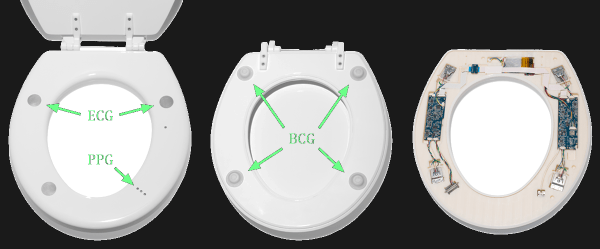Our morning routine could be appended to something like “breakfast, stretching, sit on a medical examiner, shower, then commute.” If we are speaking seriously, we don’t always get to our morning stretches, but a quick medical exam could be on the morning agenda. We would wager that a portion of our readers are poised for that exam as they read this article. The examiner could come in the form of a toilet seat. This IoT throne is the next device you didn’t know you needed because it can take measurements to detect signs of heart failure every time you take a load off.
Tracking heart failure is not just one test, it is a buttload of tests. Continuous monitoring is difficult although tools exist for each test. It is unreasonable to expect all the at-risk people to sit at a blood pressure machine, inside a ballistocardiograph, with an oximeter on their fingers three times per day. Getting people to browse Hackaday on their phones after lunch is less of a struggle. When the robots overthrow us, this will definitely be held against us.
We are not sure if this particular hardware will be open-source, probably not, but there is a lesson here about putting sensors where people will use them. Despite the low rank on the glamorous scale, from a UX point of view, it is ingenious. How can we flush out our own projects to make them usable? After all, if you build a badass morning alarm, but it tries to kill you, it will need some work and if you make a gorgeous clock with the numbers all messed up…okay, we dig that particular one for different reasons.
Via IEEE Spectrum.











